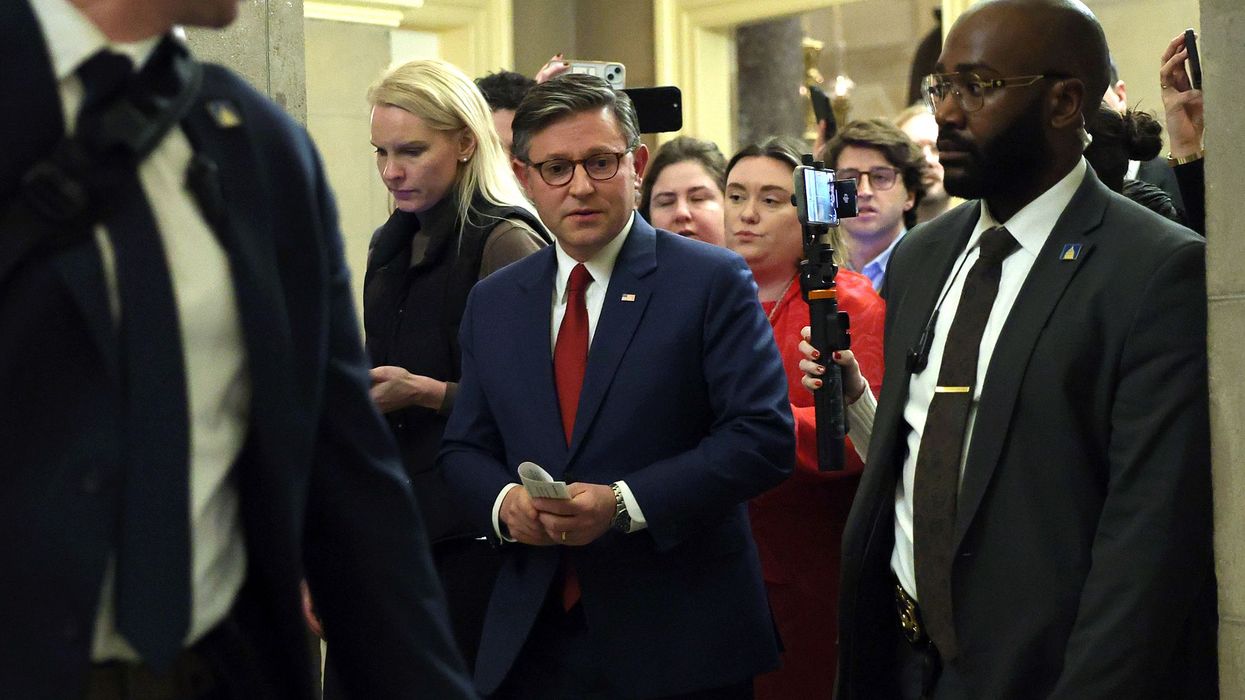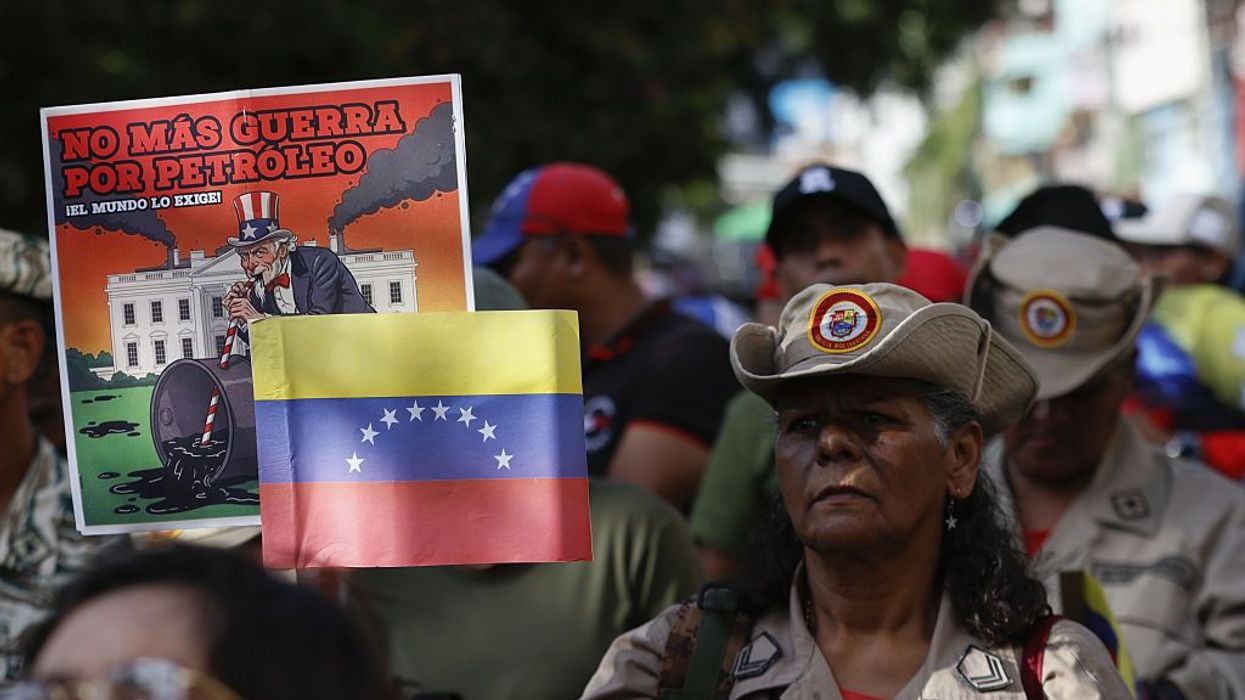May, 15 2012, 04:28pm EDT

For Immediate Release
Contact:
Lisa J. Danetz, Demos: (617) 256-6266
Stacie Royster, Lawyers’ Committee (national): (202) 662-8317
Sarah Massey, Project Vote: (202) 210-6614
Rahsaan Hall, Lawyers’ Committee (Boston): (617) 988-0608
Tim Larimer, Ropes & Gray LLP: (212) 596-9414
Massachusetts Citizen and Community Groups Sue Commonwealth for Failing to Provide Voter Registration Opportunities
Citing clear evidence that the Secretary of the Commonwealth and the Massachusetts Department of Transitional Assistance (DTA) have violated their federally-mandated responsibilities to offer tens of thousands of public assistance clients opportunities to register to vote, a Massachusetts citizen and two community groups filed suit today for violations of the National Voter Registration Act of 1993 (NVRA).
Download the Complaint (PDF): https://bit.ly/J9XBwC
BOSTON
Citing clear evidence that the Secretary of the Commonwealth and the Massachusetts Department of Transitional Assistance (DTA) have violated their federally-mandated responsibilities to offer tens of thousands of public assistance clients opportunities to register to vote, a Massachusetts citizen and two community groups filed suit today for violations of the National Voter Registration Act of 1993 (NVRA).
Download the Complaint (PDF): https://bit.ly/J9XBwC
Congress passed the NVRA to boost democratic participation by ensuring that all eligible citizens have ample opportunities to register to vote. Section 7 of the law requires state agencies that provide public assistance, including those that administer federal assistance programs such as food stamps, Medicaid, TANF, and WIC, to assist their applicants and clients in registering to vote.
Attorneys filed today's suit on behalf of Bethzaida Delgado, NAACP New England Area Conference (NAACP-NEAC), and New England United for Justice (NEU4J). Ms. Delgado is a DTA client who is eligible to vote but was not offered the opportunity to register in her interactions with DTA offices over several years. The NAACP, the oldest, largest and most effective civil rights advocacy organization in the country, and NEU4J, a community organization, help low-income Massachusetts citizens register to vote. They seek concrete changes in DTA practices and procedures that will make voter registration available to every eligible public assistance agency applicant and client in the Commonwealth, as required by the NVRA.
The plaintiffs are represented by voting rights groups Demos, Project Vote, the Lawyers' Committee for Civil Rights Under Law, and the Lawyers' Committee for Civil Rights and Economic Justice, as well as the law firm of Ropes & Gray LLP. Defendants named in the suit are Massachusetts Secretary of State William F. Galvin and officials from the Executive Office of Health and Human Services and the DTA.
"The NVRA is the best law on the books for helping low-income citizens participate in our democracy, and states must follow it," said Lisa Danetz, counsel for Demos. "It's surprising and disappointing that Massachusetts is lagging behind rather than leading the charge."
"Ropes & Gray's decision to serve as pro bono legal counsel in this voting rights case shows our continuing commitment to represent low income individuals who are too often denied access to our judicial system," said Ken Felter, a Boston-based partner at the firm, whose lawyers devoted almost 90,000 hours to pro bono work in 2011. "Voting is a fundamental right, and we hope that, as result of this case, Massachusetts will immediately remedy its widespread and systemic violations of the NVRA in time for every eligible citizen receiving public assistance to register and vote in the November federal election."
In a Complaint filed today in federal district court in Boston, plaintiffs point to what they say is clear evidence that the Commonwealth and DTA are not complying with federal law:
- The number of voter registration applications submitted through public assistance offices in 2009-2010 (just 2,007) is down 92.5% from 1999-2000.
- DTA's own internal reporting suggests that at least 94.2% of its clients in 2011 did not receive the required voter registration services.
- Nearly three-quarters of DTA clients interviewed in preparation for today's suit reported receiving no offer of voter registration opportunities in any manner.
"The NVRA makes voter registration DTA's responsibility," said Maude Heard of NEU4J. "But because they're not doing their job, we need to spend scarce resources helping members of our community get on the voter rolls."
"We're tired of picking up the slack when the state fails our most vulnerable citizens," added Juan Cofield, president of the New England Area Conference of the NAACP. "So, after years of neglect we decided to sue."
According to plaintiffs, Massachusetts' NVRA violations have contributed to a significant income-based voter registration gap in the Commonwealth. For example, in 2010 only 58.2% of eligible low-income citizens were registered to vote, compared with 76.9% of affluent citizens- a "voter registration gap" of 18.7%. This gap was 28% in the presidential election year of 2008.
"In failing to comply with the NVRA, Massachusetts has significantly limited low-income citizens' opportunities to register to vote. This ultimately threatens the integrity of our democracy not just in the Commonwealth, but nationwide," said Sarah Brannon, director of the Public Agency Registration Program at Project Vote.
Further, plaintiffs' attorneys report that NVRA violations in Massachusetts are part of a national pattern of states failing to meet their public agency registration obligations. According to the U.S. Election Assistance Commission, public assistance agencies nationwide collected just 528,000 voter registration applications in 2005-2006, compared with 2.6 million when the NVRA was first implemented in 1995-1996, an 80% decline. Since 2006, interventions like today's lawsuit have helped reverse the decade-long negative trend. Public assistance agencies collected 1.1 million applications in 2009-2010.
"As we experience a national wave of attempts to keep low-income citizens off the rolls and out of the voting booth, we simply cannot accept any state's failure to meet its responsibilities," said Robert Kengle, co-director of the Voting Rights Project at the Lawyers' Committee for Civil Rights Under Law.
Plaintiffs' initial goal is to obtain a preliminary injunction ordering defendants to develop and implement remedial practices and policies in time to get tens of thousands of low-income voters on the voter rolls for this fall's election.
"With the voter registration deadline for the 2012 election rapidly approaching, we don't have a moment to lose," said Rahsaan Hall, deputy director of the Lawyers' Committee for Civil Rights and Economic Justice. "Now is the time to help low-income citizens make their voices heard in our democracy."
Demos is a think tank that powers the movement for a just, inclusive, multiracial democracy. Through cutting-edge policy research, inspiring litigation, and deep relationships with grassroots organizations, Demos champions solutions that will create a democracy and economy rooted in racial equity.
LATEST NEWS
'Straight-Up Nazi Stuff': Trump Admin Plans to Strip More Naturalized Americans of Citizenship
"Requiring monthly quotas that are 10 times higher than the total annual number of denaturalizations in recent years," said one former immigration official, "turns a serious and rare tool into a blunt instrument and fuels unnecessary fear and uncertainty."
Dec 18, 2025
Policy experts were skeptical Wednesday that the Trump administration could legally or practically carry out its threat to strip more naturalized Americans of their citizenship. Still, they warned that new guidance issued by the White House to immigration officials would ramp up "fear and terror" in immigrant communities and could portend the targeting of naturalized citizens who President Donald Trump views as adversaries.
The guidance was issued Tuesday to US Citizenship and Immigration Services (USCIS) field offices, with officers directed to supply the Department of Justice (DOJ) with "100-200 denaturalization cases per month” in the 2026 fiscal year.
The denaturalization process is "deliberately hard" for the federal government, noted American Immigration Council senior fellow Aaron Reichlin-Melnick, and stripping people of the citizenship is a rare step only taken in cases of fraud when they applied to be a citizen or in other narrow circumstances.
As such, between 2017-25, there have been just over 120 denaturalization cases filed with the Office of Immigration Litigation at the DOJ.
Under the first Trump administration, denaturalization cases peaked at 90 in one year in 2018, and the directive issued Tuesday signaled the White House is aiming for a far bigger escalation as it also continues its mass deportation operation and blocks people from seeking asylum as they are permitted to under international law.
Reichlin-Melnick called the directive for a denaturalization quota "vicious and cruel," and pointed out that the president is asking USCIS and the DOJ to take on an onerous task.
"These cases are hard to file and win, and require a lot of DOJ resources, and the DOJ is stretched thin already. So we’ll see; I have serious doubts about their ability to do this," said Reichlin-Melnick.
USCIS refers cases to the DOJ, which must prove in a federal court that it has "unequivocal evidence" that someone obtained their citizenship illegally or fraudulently.
"The Supreme Court has repeatedly stated that citizenship and naturalization are too precious and fundamental to our democracy for the government to take it away on their whim. Instead of wasting resources digging through Americans’ files, USCIS should do its job of processing applications, as Congress mandated,” Amanda Baran, a former senior USCIS official who served during the Biden administration, told the New York Times.
Naturalized Americans account for 26 million people in the US, with 800,000 people sworn in last year. In most cases, a person who loses their citizenship status is classified as a legal permanent resident.
Trump has repeatedly called to denaturalize Rep. Ilhan Omar (D-Minn.) and to deport her over her criticism of his policies, and has made the same threat against New York Mayor-elect Zohran Mamdani, a democratic socialist.
In those threatened cases, wrote Michael Waldman, president and CEO of the Brennan Center for Justice, earlier this month, "it appears that crime isn’t so much a motivation as disloyalty."
"Stripping citizens of their citizenship in the name of making the electorate more 'American' is arguably one of the most un-American acts imaginable," wrote Waldman. "We are a nation of immigrants and also a nation of laws. The courts must continue to ensure that those laws protect naturalized citizens from being punished for speaking out."
Three other Brennan Center experts also recently wrote about the history of denaturalization efforts in the US, including during the "Red Scare" of the 1950s:
Sen. Joseph McCarthy of Wisconsin led witch hunts, with denaturalization often used as a tool against accused communists or sympathizers. Among those targets was Harry Bridges, an Australian-born, nationally known labor leader accused of being a communist, who faced an ultimately unsuccessful campaign to revoke his citizenship. The Supreme Court ruled in his favor, not once, but twice.
"This is straight-up Nazi stuff and I’m calling on my fellow Jewish Americans who know where this can lead to be in the vanguard against it," said Dylan Willams, vice president for government affairs at the Center for International Policy, also noting that the influential American Israel Public Affairs Committee has endorsed Rep. Randy Fine (R-Fla.), who has called for the denaturalization and expulsion of Muslim Americans and immigrants.
Sarah Pierce, a former USCIS official, told the Times that Trump's quota for denaturalization cases "risks politicizing citizenship revocation" as it has been in the past.
“And requiring monthly quotas that are 10 times higher than the total annual number of denaturalizations in recent years," she said, "turns a serious and rare tool into a blunt instrument and fuels unnecessary fear and uncertainty for the millions of naturalized Americans.”
Keep ReadingShow Less
House GOP to Skip Town Early for Holiday Recess as Healthcare Premiums Soar, Epstein Files Loom
"The same GOP that voted last summer to give the richest Americans and most profitable companies trillions of dollars in tax cuts somehow can't find the funds this winter to ensure 20 million Americans can afford their health insurance."
Dec 18, 2025
The US House was originally scheduled to be in session on Friday, but the Republican leadership gave members a green light to skip town on Thursday for the two-week holiday recess without voting to prevent massive health insurance premium hikes for tens of millions of Americans.
The decision to let members leave early came after House Democrats secured enough support from swing-district Republicans to force a vote on legislation that would extend Affordable Care Act (ACA) subsidies that are set to expire on December 31, sending premiums soaring.
Democrats on Wednesday demanded an immediate vote on the proposed three-year extension of the ACA tax credits, but Republicans instead pushed to the floor and passed their own healthcare bill that would leave around 100,000 more Americans uninsured per year over the next decade—on top of the millions set to lose coverage due to the expiration of the enhanced subsidies.
The GOP bill is doomed to fail in the narrowly Republican-controlled Senate, which voted down a Democratic push for an extension of the subsidies earlier this month.
More than 20 million Americans relied on the tax credits to afford health insurance. With their expiration, ACA marketplace premiums are set to more than double on average, pricing many people out of coverage entirely.
"Congressional Republicans could have followed through on their promises to help families afford the basics by extending the premium tax credit enhancements to help them enroll in affordable, comprehensive coverage. Instead, they recycled old ideas, refused to address the current affordability crisis—and made plans to go home," Sharon Parrott, president of the Center on Budget and Policy Priorities, said in a statement Wednesday.
"On the brink of this deadline, some Republicans have recognized that the stakes for families are too high to do nothing," Parrott added, pointing to the four GOP lawmakers who signed the discharge petition. "A House bill to extend the premium tax credit enhancements now has the required signatures on its discharge petition to force a vote on the House floor. Republican policymakers should step up and put the needs of individuals and families first."
"If Speaker Johnson refuses to bring forth the vote, he’s telling the American people loud and clear that rising healthcare costs are acceptable to him."
It's unclear when the discharged House Democratic bill will get a vote, as the chamber is not scheduled to return until January 6, 2026—after the ACA tax credits expire.
"If Speaker Johnson refuses to bring forth the vote, he’s telling the American people loud and clear that rising healthcare costs are acceptable to him," said Rep. Jasmine Crockett (D-Texas), who is running to unseat Sen. John Cornyn (R-Texas) in next year's midterm election.
David Kass, executive director of Americans for Tax Fairness, said in a statement Thursday that "instead of siding with millions of everyday Americans, they voted to increase healthcare costs which will now put affordable coverage out of reach for millions."
"Congressional Republicans once again revealed whose side they're on," said Kass. "The same GOP that voted last summer to give the richest Americans and most profitable companies trillions of dollars in tax cuts somehow can't find the funds this winter to ensure 20 million Americans can afford their health insurance."
The House Republican leadership's decision to start the holiday recess also came ahead of the Friday deadline for the Trump administration to release most of the Epstein files, as required by recently enacted legislation.
"View all political developments for the rest of the week in light of the fact that the Epstein files are supposed to be released on Friday," said Rep. Alexandria Ocasio-Cortez (D-NY). "House Republicans just suddenly cancelled congressional session Friday and are sending everyone home Thursday evening."
Keep ReadingShow Less
63% of US Voters Oppose Attack on Venezuela as Trump's March to War Accelerates
The new poll comes as the US president openly plots to seize Venezuela’s oil supply.
Dec 18, 2025
President Donald Trump has taken increasingly aggressive actions against Venezuela in recent weeks, but a new poll released Wednesday shows US voters are not on board with a new war.
A new poll from Quinnipiac University found that 63% of voters oppose military operations inside Venezuela, with just 25% registering support.
What's more, a US military strike in Venezuela would draw significant opposition even from Republican voters, 33% of whom told Quinnipiac that they would oppose such an action. Eighty-nine percent of Democratic voters and 68% of independent voters said they were opposed to a US military campaign in Venezuela.
Trump's policy of bombing suspected drug trafficking boats in international waters, which many legal experts consider to be acts of murder, drew significantly less opposition in the new survey than a prospective attack on Venezuela, but it is still unpopular, with 42% in favor and 53% opposed.
A potential war is also unpopular with Venezuelans, as a recent survey from Caracas-based pollster Datanalisis found 55% opposed to a foreign military attack on their nation, with 23% in favor.
The Trump administration's boat strikes, which have now killed at least 99 people, have been just one aspect of its campaign of military aggression against Venezuela. The US military last week seized a Venezuelan oil tanker, and Trump has said that it's only a matter of time before the military launches strikes against targets inside the country.
Trump on Wednesday also said that one goal of his campaign against Venezuela would be to seize the country's oil supply.
“Getting land, oil rights, whatever we had—they took it away because we had a president that maybe wasn’t watching,” Trump said while talking to reporters. “But they’re not gonna do that. We want it back. They took our oil rights. We had a lot of oil there. They threw our companies out. And we want it back."
Venezuela first nationalized its oil industry in 1976, and the US has no legitimate claim to the nation's petroleum supply.
Keep ReadingShow Less
Most Popular


